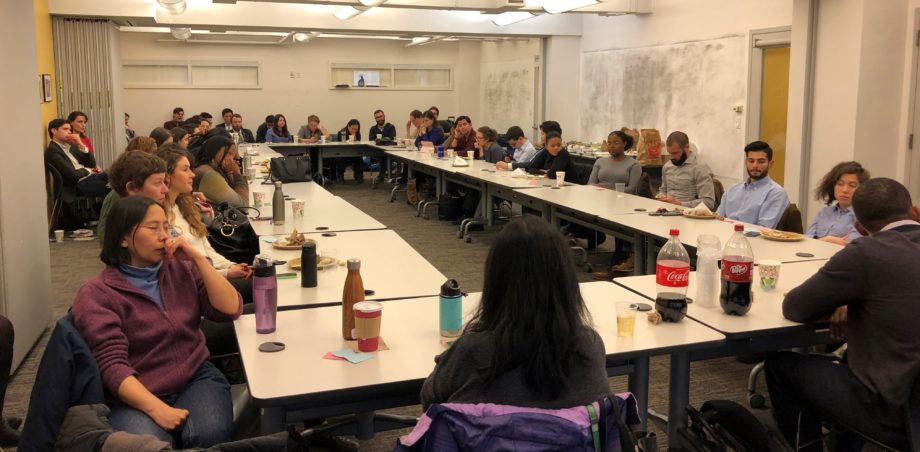January 31, 2018
Members of the Legal Services Staff Association’s Mobilization for Justice (MFJ) shop today voted to ratify a new three year contract to run from January 1, 2018 through December 31, 2020.
Members will receive 2% salary increases in each year of the contract, up from MFJ’s initial proposal of 1% each year. MFJ agreed to increase its contribution to staff members’ retirement savings to 7% of salary, up from 6.5%. Salary scales for paralegals and support staff were adjusted to address inequities in the scales which had given these staff smaller percentage increases at some steps compared to attorneys on comparable steps.
In the arena of health care, we were able to add vision insurance at no cost to the employee and maintain uncapped accrual of sick days. A major issue for staff had been problems with the third party administrator of medical expense reimbursement. Union members agreed to bring the administration of medical expense reimbursement in-house at MFJ, with MFJ’s commitment that MFJ would safeguard this vulnerable information and maintain the strictest level of confidentiality to protect it.
Another priority was to address current working conditions. Chief among these was to make sure that staff members get feedback about any job performance problems and an opportunity to fix those problems before they face discipline. We were able to negotiate a process giving both probationary and post-probationary employees notice of the problem and the right to sit down with the employer and engage in an interactive process to identify specific steps and timeframes to address the job performance at issue. The union successfully opposed MFJ’s proposal to drastically extend the probationary period during which an employee can be fired without cause. We also successfully resisted two other anti-union management proposals, one of which would have eliminated the right of the most senior qualified employee to transfer to a different unit, and the other of which would have allowed MFJ to characterize many more hires as “temporary” and not provide them with health insurance. Finally, we negotiated a “flex time” provision to provide some schedule flexibility for attorneys and social workers, who are not eligible for overtime, but who often have to work odd or late hours to meet the needs of our clients.
